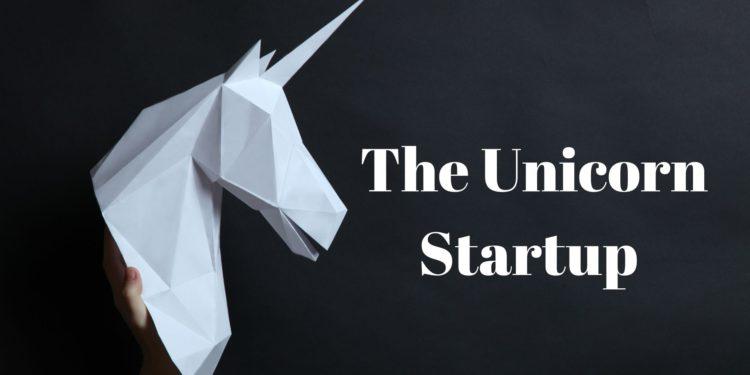South Korea’s startup ecosystem is thriving. Innovative ideas, enterprising founders and an amiable support system both through domestic and international ventures make Korea a breeding ground of unicorns. From e-commerce, blockchain, Artificial Intelligence, Virtual Reality, FinTech to agricultural innovations, South Korean startups succeed in multiple areas.
As of July 19, 2021, the Korean Ministry of SMEs and Startups announced that the country has 15 unicorn startups. At the end of last year, there were 13 unicorn Korean companies, and as of July 19, 2021, there are 15 unicorns, as three companies were added, including Zigbang, Market Kurly and Dunamu. E-Commerce startup Coupang, a successful listing on the New York Stock Exchange early in 2021, was excluded from the unicorn companies list. Also excluded from the list is Woowa Brothers, which attained unicorn status in 2018, operating its food delivery app ‘Baedal Minjok,’ as it got acquired by German company Delivery Hero for $4 billion in 2019.
What is a unicorn status in the startup ecosystem? It is a startup or company whose value reaches over a billion dollars or 1 trillion won. The latest list announced by the Ministry of SMEs and Startups includes unlisted startups. The robust infrastructure, venture boom, government support and tech growth in Korea are the reasons why the country is among the top 5 nations riding the phenomenal unicorn wave.
The government envisages the number to reach 20 unicorns by 2022. If the list includes unicorn startups from previous years listed, then 23 companies have exceeded in valuation over 1 trillion won. Eight of the startups were excluded from the latest unicorn list due to their IPOs or M&A deals. PUBG creator Krafton, which is present on the current list, is likely to lose its position as it goes public soon.
“The birth of domestic unicorn companies in the first half of this year proves the second venture boom that has been going on since last year, and at the same time, it is a good example that shows that the paradigm of economic structure centered on large enterprises is changing to venture and startups,” as per a statement by the Ministry of SMEs and Startups that plans to supplement existing venture/startup related systems such as stock options to create an ecosystem where more technology-based startups can be born into new unicorn companies.
Home-matching platform Zigbang, grocery delivery app Market Kurly, and Dunamu, operator of the country’s largest digital coin exchange, are the latest on the list of Korean unicorns, there are speculations the next unicorn startup could be Danggeun Market Inc. that operates the second-hand goods transaction market Karrot.
As per a report, Karrot Market, which is currently under investment negotiations, is expected to complete a series D round worth 180 billion won or $157 million by the end of this month. It is known that the enterprise value is estimated at 3 trillion won or $2.6 billion. Altos Ventures, Goodwater Capital, Strong Ventures, Softbank Ventures, Capstone Partners, Kakao Ventures, and Aspecs Management, a Hong Kong-based venture capital, have participated in the Series D round of the Karrot market.
Koreatechdesk.com presents the latest list of Korean startups that form the unicorn club and are soaring high on success:
ZigBang
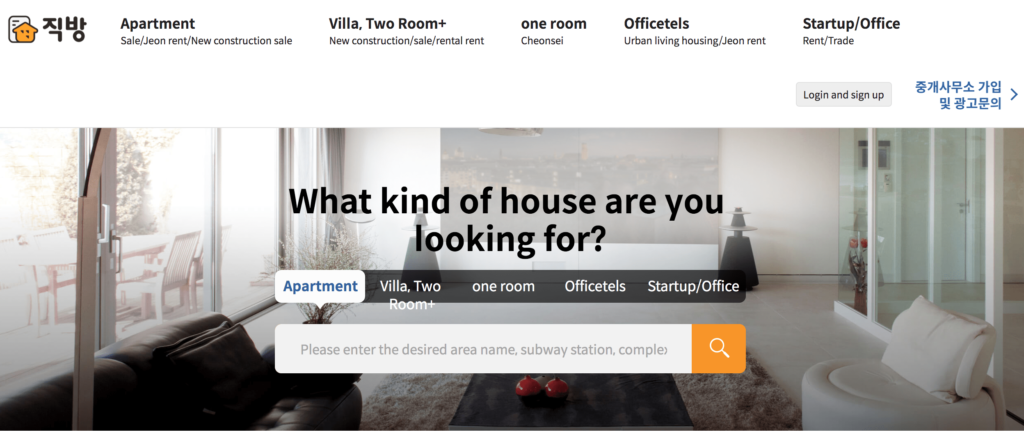

Korean startup Zigbang Co. Ltd.’s app is the number one place for all those looking for a rental property in Korea. In a country with constrained urban spaces and limited real-estate properties, the ZigBang app is helping millions find the perfect rental home or office. Launched in 2012, the Zigbang app is a one-stop shop for rental real-estate covering from a studio apartment, a two-room apartment, a villa, an upscale office to rental stores. Zigbang’s unique 3D and virtual reality technology offer consumers immersive tour experiences from the comfort of their own homes, helped them sail through the pandemic times. The startup also launched its first mobile model house and a 3D apartment complex tour.
The protech startup attained its unicorn status when DSC Investment purchased old ZigBang stocks worth tens of billions of won. The company also ranks 9th in the world, according to the CB Insights report. With the unicorn status, the company is pushing for more innovation. Implementing a chatbot that will facilitate sales price consultation, location of listings, and transactions, ZigBang now has its sights set on an even higher ranking of ‘decacorn,’ or an unlisted company valued at least 10 trillion won. The Korean companies closest to decacorn status are Krafton and Yanolja.
Market Kurly
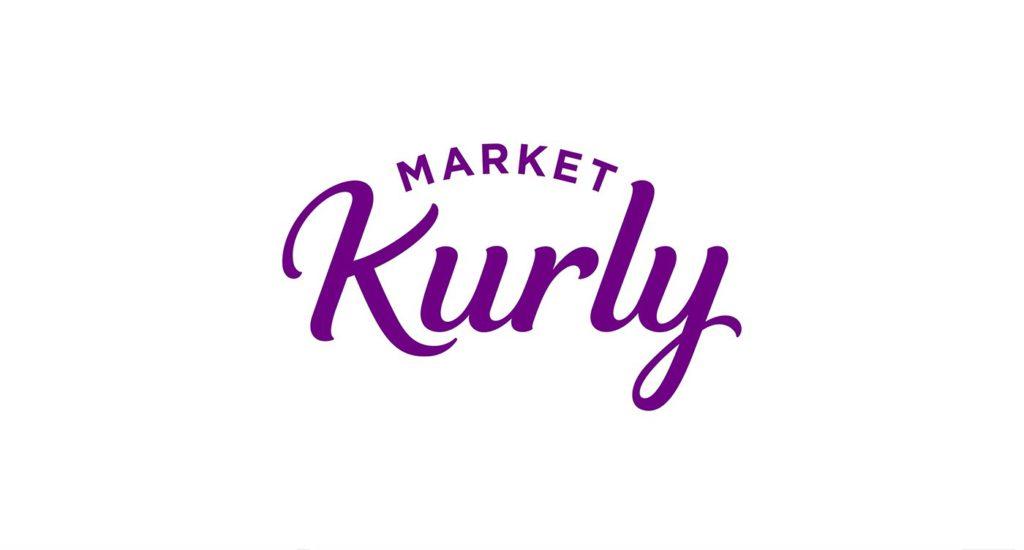

The e-commerce startup is an online service that delivers fresh groceries to your doorstep. It is not only seeing phenomenal sales growth but is also getting adequate attention from investors. Market Kurly has reached its funding from investors at home and abroad, including Sequoia Capital China, Global Venture Partners based in London and Berlin and Mirae Asset Venture Investment in Korea.
Market Kurly was founded in 2015 by an ex Goldman Sachs Banker Sophie Kim with providing fresh and healthy food supplies to the growing working-class members of Korean households with the money to buy but no time to go to the market.
Market Kurly delivers premium grocery and food products to its users through online orders made before 11 pm each day, and it’s delivered at the consumer’s home before 7 am the next day. The company delivers fresh high-end desserts, bread, milk, bottled water, condiments such as flour and salt, processed foods, meat, juices, fish, eggs, foreign goodies and much more. This app has become popular amongst the health-conscious, single-person and working couple households in South Korea. The COVID-19 period meant Market Kurly saw increase in demand.
The startup attracted $196 million or 225.4 billion won of Series F investment recently as it prepares for an IPO (initial public offering) on the Korean stock market. With this investment, the unicorn startup’s corporate value was estimated at $2.17 billion or 2.5 trillion won, a 2.6-fold increase about a year after the Series E investment in 2020.
Dunamu-Upbit


The financial company owns the popular cryptocurrency exchange Upbit. Dunamu & Partners is an investment company that has an interest in FinTech and blockchain companies. The company operates Upbit that allows users to trade various altcoins like Bitcoins, Ethereum, etc., in a secure and convenient system.
Upbit was launched in 2017 with the help of the American cryptocurrency exchange Bittrex. Within two months of its launch, it became a top global cryptocurrency exchange regarding the 24-hour trading volume. The exchange has expanded to Southeast Asia with the launch in Singapore in 2018 and in Indonesia in 2019. Dunamu, a subsidiary of Korean tech giant Kakao Corp., is the main investor behind Upbit and runs the Kakao Stock app. Upbit and competitor Bithumb are estimated to have 40 percent shares of the market.
Krafton
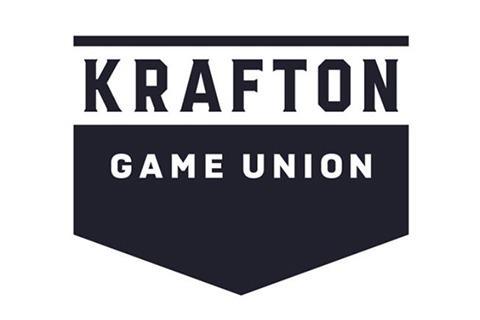

PUBG creator Krafton, which has been on a buying spree in 2021, acquiring various content companies, is set to go public in August 2021. Krafton, formerly known as Bluehole, develops and distributes video games. Founded by Chang Byung-gyu in Seoul, March 2007, the company is known for globally popular PlayerUnknown Battlegrounds released in 2017 and PUBG: NEW STATE in 2021. In November 2018, Bluehole was reorganized under one brand: Krafton Game Union. In 2021 Krafton has invested $45 million (about 51.5 billion won) in India’s largest web novel platform Pratilippi, acquired the Korean dating app Between and chatbot entertainment startup Thingsflow. The gaming startup also invested in another Indian game streaming platform, LOCO, last month.
Krafton is scheduled to be listed on the KOSPI on August 10. It completed the subscription for public offering shares at a margin of 5,355.8 billion won collection, and the final competition ratio was 7.79:1. Tencent Funding, Altos Ventures, IMM Investment and Premier Partners are investors in Krafton.
Viva Republica (Toss)
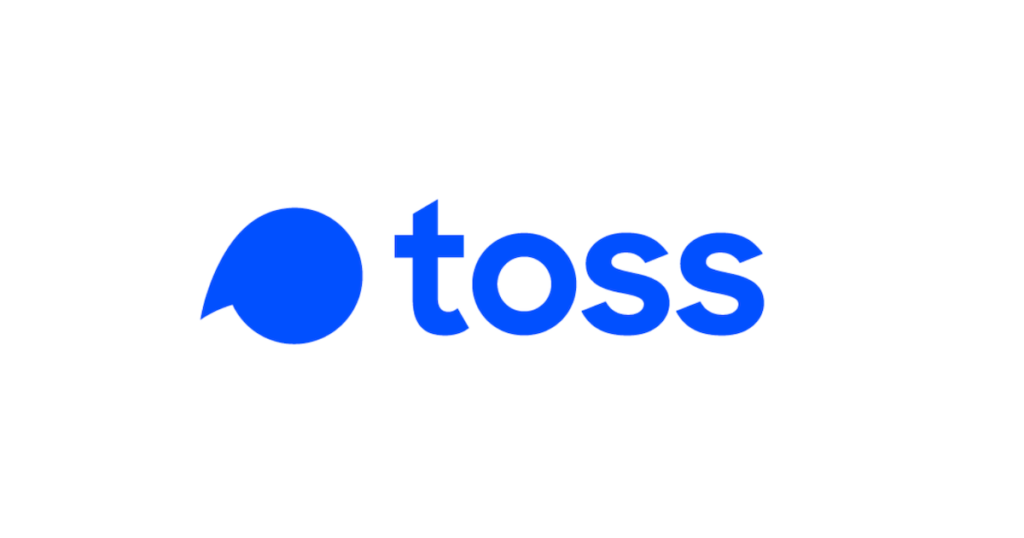

FinTech Korean startup Viva Republica is the pioneer in the peer-to-peer money transactions market that has grown exponentially in South Korea. The company manages the popular P2P mobile payment app ‘Toss’. The app has grown to over 20 million registered users and now has over 20% of South Korea’s population as its users. The Toss app has now become a super app with more than 40 financial services offered on single platform.
The company was founded in 2011 by dentist Seunggun Lee and ‘Toss’ was launched in 2015. The startup hit the unicorn status in 2018. Toss is proving to be a much more beneficial and easier option for financial transactions as compared to the banking system, where security protocol is complex and the money transfer process is cumbersome. Viva Republica, the creator of mobile financial secured $64 million at a valuation of $2.2 billion by Hong Kong-based equity investment firm Aspex Management in 2019.
Viva Republica announced in August 2020 that it has raised $ 173 million in new funding led by key existing investors to fully drive its new initiative and become a one-stop app for all financial needs. It was one of the largest single investment raised in the midst of global market turmoil due to the COVID-19 pandemic.
The company plans to launch Toss Bank, a neobank, in September 2021. It will also continue its expansion in overseas markets, including Vietnam, where Toss launched last year. In June 2021, Viva Republica raised $410 million in fresh funding, raising the value of the company at $7.4 billion.
Yanolja
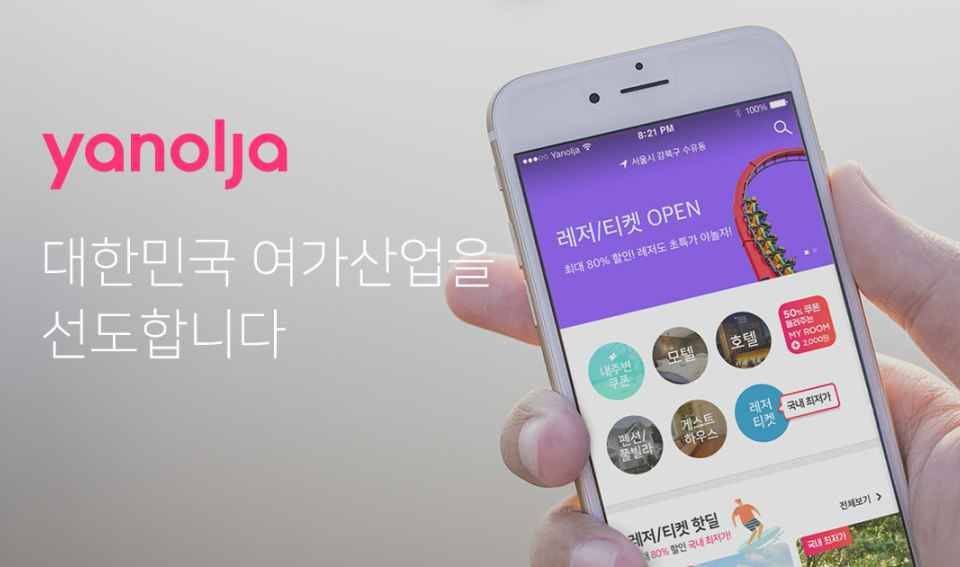

This Korean startup that has made its mark in the hotel and accommodation industry has recorded an annual growth of 150% over ten years period. It became ‘unicorn’ in July 2019 and is now set on path to become a decacorn. The travel and leisure platform completed a record $1.7 billion investment round by sole investor SoftBank Vision Fund 2 in July 2021.
Yanolja said the company will use the proceeds to scale digital transformation of the global travel and hospitality industry and expand its technology offerings in new markets.
The company plans to build and operate an advanced global travel platform by enhancing its automated solutions using artificial intelligence and personalized offerings based on big data, in line with its expansion of its cloud-based hospitality solutions business. “Powered by (artificial intelligence), we believe Yanolja is a leader in transforming the travel and leisure industry in South Korea through its Travel Super App approach,” Greg Moon, managing partner at SoftBank Investment Advisers, said in a statement.
The startup was founded in 2005 by a former hotel worker Lee Su-jin. The company was started as an advertising platform for ‘love hotels’ before becoming an app-based booking service. Now its services include Yanolja Accommodation, Yanolja Dangil (same day bookings), and Yanolja Pension. The startup now has more than 200 hotels in Korea and has overseas expansion as well, with partnerships with Zen Rooms, Agoda, and Booking. With growth and investments, the company is aiming to launch an IPO this year.
Recently, Yanolja launched a new corporation, ‘Yanolja Cloud,’ composed of its affiliates eZee Technosys, ZEN Rooms, Affiliated Information Technology, and Truststay. Yanolja Cloud is currently providing B2B operation solutions in more than 60 languages to more than 30,000 customers in 170 countries worldwide. While the COVID-19 pandemic hit the travel industry companies the worst, Yanolja was able to stand through the storm. Last year, Yanolja recorded 192 billion won in sales, a 43.8% increase compared to the 2019 sales of 133.5 billion won.
WeMakePrice
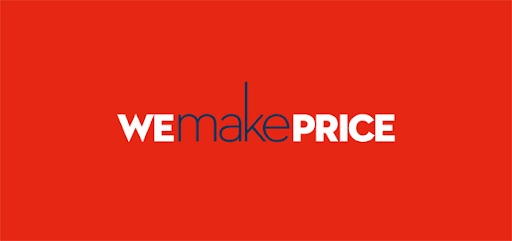

This is one more E-commerce platform in South Korea that has achieved unicorn status. The startup that is similar to Groupon sells a variety of consumer goods online. Launched in 2010, the Company’s vision is quite clear – “We save our customers’ money and time.” To make the shopping experience easier and affordable, WeMakePrice gets its supplies directly from wholesalers and encourages bulk buying deals. The Company offers various price-saving schemes for shoppers like special shop, special club, special performance tickets, best pick, hidden prices, and other related goods discounts information. It offers services throughout South Korea. The startup also has a food delivery app WeMakePrice O, competing with the likes of Coupang Eats. The e-commerce platform made $5.36 billion worth of transactions in 2019. The Company has been funded by investors NEXON Corporation, IMM Investment and NXC.
Musinsa


The online fashion platform has garnered huge success especially among the Korean youth. Musinsa provides fashion brands through collaboration and special promotional events besides a regular selling of fashion cloths and accessories. Munsinsa also runs a special magazine for its users to assess new brands with latest information. Founded in 2001, it has investments from Sequoia Capital, LB Investment, IMM Investment. In May 2021, the fashion unicorn startup Musinsa acquired a 100% stake in fashion platform StyleShare and 29CM. The acquisition scale is $265 million or 300 billion won. The acquisition will help Musinsa become a global seller for K-Brand.
Sendbird


Korean Chat API startup Sendbird provides an array of interactive services, chat, video, etc. to companies like Hinge, Paytm, Delivery Hero, Reddit. Sendbird has 150 million users sending over 2.5 billion messages through its platform every month across the globe. Founded by John S. Kim, Brandon Jeon, Harry Kim, Forest Lee, SendBird’s core technology – a messaging software development kit enables companies to easily mount chat functionality on their apps, websites, and games. The SendBird platform is becoming one of the most scalable chat-API globally and it has been innovating its services to suit the demands of the digital world.
In 2020, Sendbird launched several new products; Sendbird Calls, API and SDKs to create voice and video interactions, Sendbird UIKit, a ready-to-go configurable user interface that allows customers to embed a best-in-class messaging experience into their apps with just a few lines of code. The startup also introduced a new self-service product offering to simplify the buying process, and launched a free trial offering for developers. The company also hired aggressively and doubled its presence in Europe and Singapore. In May 2021, Sendbird introduced a multi-party audio and video calls to its app.
Socar


SOCAR is South Korea’s No. 1 car-sharing platform. Founded in 2011, SOCAR now offers over 16,000 vehicles in 3,200 zones throughout the country. On October 2020, the company attracted 60 billion won of funding from investors, achieving unicorn status with a corporate value of 1 trillion won or $872.6 million.
Socar started its ride sharing business with 100 rental cars. In 2018, it acquired mobile messenger startup VCNC to launch van-hailing service Tada. Tada had to cease regular operations due to a new legislation, but it still runs a premium service. This year on its 10th anniversary Socar surpassed 7 million members. As of 2019, one in five Korean driver’s license holders is a member of Socar.
The cumulative distance traveled by 7 million members with Socar is 1.6 billion km, which is a distance that one can travel around the earth 38,000 times. Over the past ten years, members have rented Socars for about 160 million hours, as per reports.
SoCar is an easy Car Rental / Car Sharing app, designed for short trips generally just for a few hours. The average usage time and driving distance of Socar users have also increased significantly. In 2016, Socar users traveled 59 km in an average of 5 hours and 10 minutes peruse, but this year, it nearly doubled to 105 km in 12 hours. The members who used Socar the most since the service started in 2011 have used Socar a total of 1,300 times since 2015, and the members with the most accumulated rental hours have used a total of 17,000 hours since 2018.
TMON
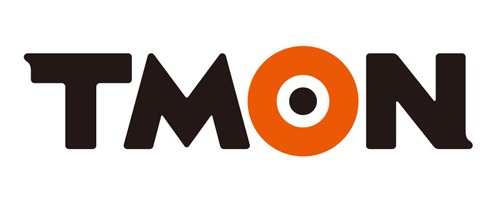

TMON (Ticket Monster) is an integrated e-commerce platform selling tickets, digital contents and CPA deals. The online shopping mall company has been preparing for an IPO since last year and has raised a $277.55 million investment in February 2021. Founded in 2010, the company operates in three key verticals – Goods, Local, and Travel – and offers over 47,000 SKUs through partnerships with approximately 15,000 merchants. To differentiate itself from its bigger competitors such as Coupang and eBay, TMON focussed on aggressive marketing campaigns. The startup introduced the Time Commerce marketing concept, selling products at clearance prices in a short window of time. For its IPO plans, TMON appointed the former CFO of Big Hit Entertainment, the agency representing K-pop sensation BTS ― Jon In-Chon in 2020.
Aprogen


It is the first Korean biotech startup to become a unicorn. Founded by KAISE (Korea Advanced Institute of Science and Technology) Professor Kim Jae-seob, Aprogen produces Remicade biosimilar that treats autoimmune diseases such as rheumatoid arthritis and Crohn’s disease. Aprogen’s investors include Linderman Asia Investment and Nichi-lko Pharmaceutical. In May 2019, Aprogen attracted a 20 billion won ($16.7 million) investment from Lindeman Asia Investment, which led its valuation to surpass 1 trillion won and gain unicorn status. Established in 2000, Aprogen became the third company to develop a biosimilar and earned a title, “the second Celltrion.” As per some reports, Aprogen is looking at options of entering the US stock market.
GP Club


It is one of the leading cosmetics manufacturing and distribution companies in Korea. The startup offers a wide range of products in the health and beauty industry, from creams, lipsticks, cleansers, and other related products. GP Club markets its products worldwide. GP Club started a game distribution business in 2003 and launched the cosmetics brand JM solution in 2016 with the know-how of the distribution business. The popularity of K-Beauty products globally helped the startup establish its brand. The company offers more than 500 product lines, including mask packs with over 1 billion sales. In 2019, Goldman Sachs Group Inc. acquired 5 percent GP Club Co. Ltd. in a $67 million deal. GP Club’s founder and CEO Kim Jung-woong’s earned his billionaire tag through the popularity of his company’s beauty products.
L&P Cosmetic


This is another K-Beauty startup that has attained unicorn status. It has a dedicated team of cosmetic scientists and formulators designing and creating the highest quality skincare and beauty products. The company is based in Seoul, South Korea. The company’s flagship product is Mediheal, a cosmetic facemask. L&P Cosmetic is funded by two investors, Credit Suisse and CDIB Capital. The company was started in 2009 and launched its flagship product, the Mediheal mask, in 2012. L&P Cosmetics products are sold overseas in the USA and Asia markets. In 2019, the company achieved the unicorn startup status.
Yello Mobile


Termed as the first unicorn of Korea, Yello Mobile operates an integrated business platform under its flagship Yello Digital Marketing. Since its establishment in August 2012, it achieved rapid growth due to its values of collaboration and co-existence as well as its focus upon mobile services which connect users’ lifestyles. By December 2014, it expanded its business conglomerate to five key operations categories: SMATO (Shopping, Media, Advertising, Travel, and Online-to-Offline) businesses. Among those were promising startups like K-Style, Michyeora, and PriceArea for shopping; under media, it had Pikicast, Jihachul, Alarmmon, and 1KM; the cloud-based related travel management service Zari and other travel services like Tour Baksa and Hannintel and the second-largest mobile ad network in Korea, Cauly which is part of the Korean Future Stream Networks. In 2014-2015, praise for Yello Mobile’s had reached its pinnacle when its conglomerated business model was touted by TechCrunch and Korea’s startup media as one of “Asia’s most unique and exciting.”
Just when Yello Mobile could apparently do no wrong, Yello Mobile’s business model’s vulnerabilities were ascertained in 2017 Yello Mobile’s discovered weaknesses began paradoxically when confirming its unicorn status by applying for an IPO. Yello Mobile correspondingly canceled its IPO and instead concentrated on listing its affiliates. Beginning in 2018, the Yello Mobile unraveling commenced when Coinone sued for 27 billion won in loan redemptions. Suits were likewise filed by DS Asset Management and AlpenRoute Asset Management: DS Asset Management and AlpenRoute Asset Management sued for repayments of 10 and 16.9 billion won, respectively. Yello Mobile for all intents and purposes was a “dead” unicorn in 2018. The only silver lining vis-à-vis the Yello Mobile saga is since it did not go public, there was not much direct collateral damage to the general public.
Also Read,
- Top 5 K-Content Korean startups looking to hit the ‘unicorn’ status
- Naver-led investment to help Carousell achieve ‘unicorn’ status
- StradVision gets recognition for futuristic technology; Joins South Korea’s ‘K-Unicorn Project’ investment program
- The rise and fall of South Korea’s one of the first unicorn startups – Yello Mobile



